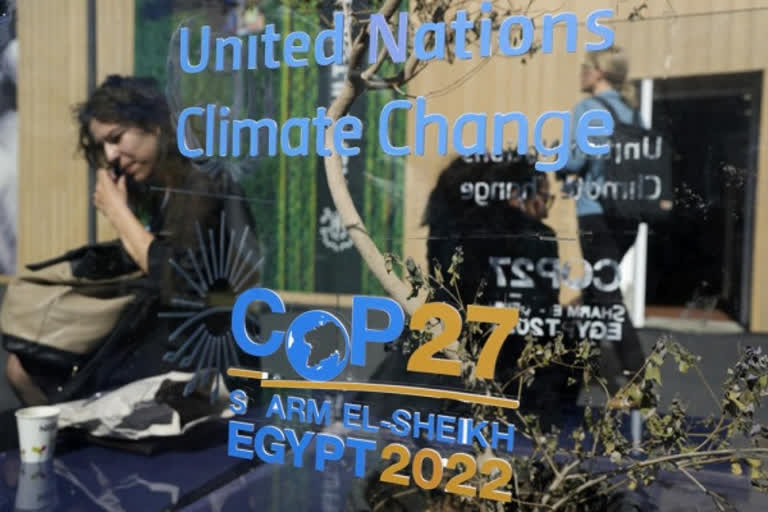Shram El-Sheikh:As the UN climate talks in Egypt near the half-way point, negotiators are working hard to draft deals on a wide range of issues they'll put to ministers next week in the hope of getting a substantial result by the end. The two-week meeting in Sharm el-Sheikh started with strong appeals from world leaders for greater efforts to curb greenhouse gas emissions and help poor nations cope with global warming.
Scientists say the amount of greenhouse gases being pumped into the atmosphere needs to be halved by 2030 to meet the goals of the Paris climate accord. The 2015 pact set a target of ideally limiting temperature rise to 1.5 Celsius (2.7 Fahrenheit) by the end of the century, but left it up to countries to decide how they want to do so.
With impacts from climate change already felt across the globe, particularly by the world's poorest, there has also been a push by campaigners and developing nations for rich polluters to stump up more cash. This would be used to help developing countries shift to clean energy and adapt to global warming; increasingly there are also calls for compensation to pay for climate-related losses.
Here is a look at the main issues on the table at the COP27 talks and how they might be reflected in a final agreement. The hosts of last year's talks in Glasgow said they managed to keep 1.5 alive, including by getting countries to endorse the target in the outcome document. But UN chief Antonio Guterres has warned that the temperature goal is on life support and the machines are rattling.
And campaigners were disappointed that agenda this year doesn't explicitly cite the threshold after pushback from some major oil and gas exporting nations. The talks' chair, Egypt, can still convene discussions on putting it in the final agreement. Negotiators are trying to put together a mitigation work program that would capture the various measures countries have committed to reducing emissions, including for specific sectors such as energy and transport.
Many of these pledges are not formally part of the UN process, meaning they cannot easily be scrutinized at the annual meeting. A proposed draft agreement circulated early Saturday had more than 200 square brackets, meaning large sections were still unresolved. Some countries want the plan to be valid only for one year, while others say a longer-term roadmap is needed. Expect fireworks in the days ahead.
Last year's meeting almost collapsed over a demand to explicitly state in the final agreement that coal should be phased out. In the end, countries agreed on several loopholes, and there are concerns among climate campaigners that negotiators from nations which are heavily dependent on fossil fuels for their energy needs or as revenue might try to roll back previous commitments.
